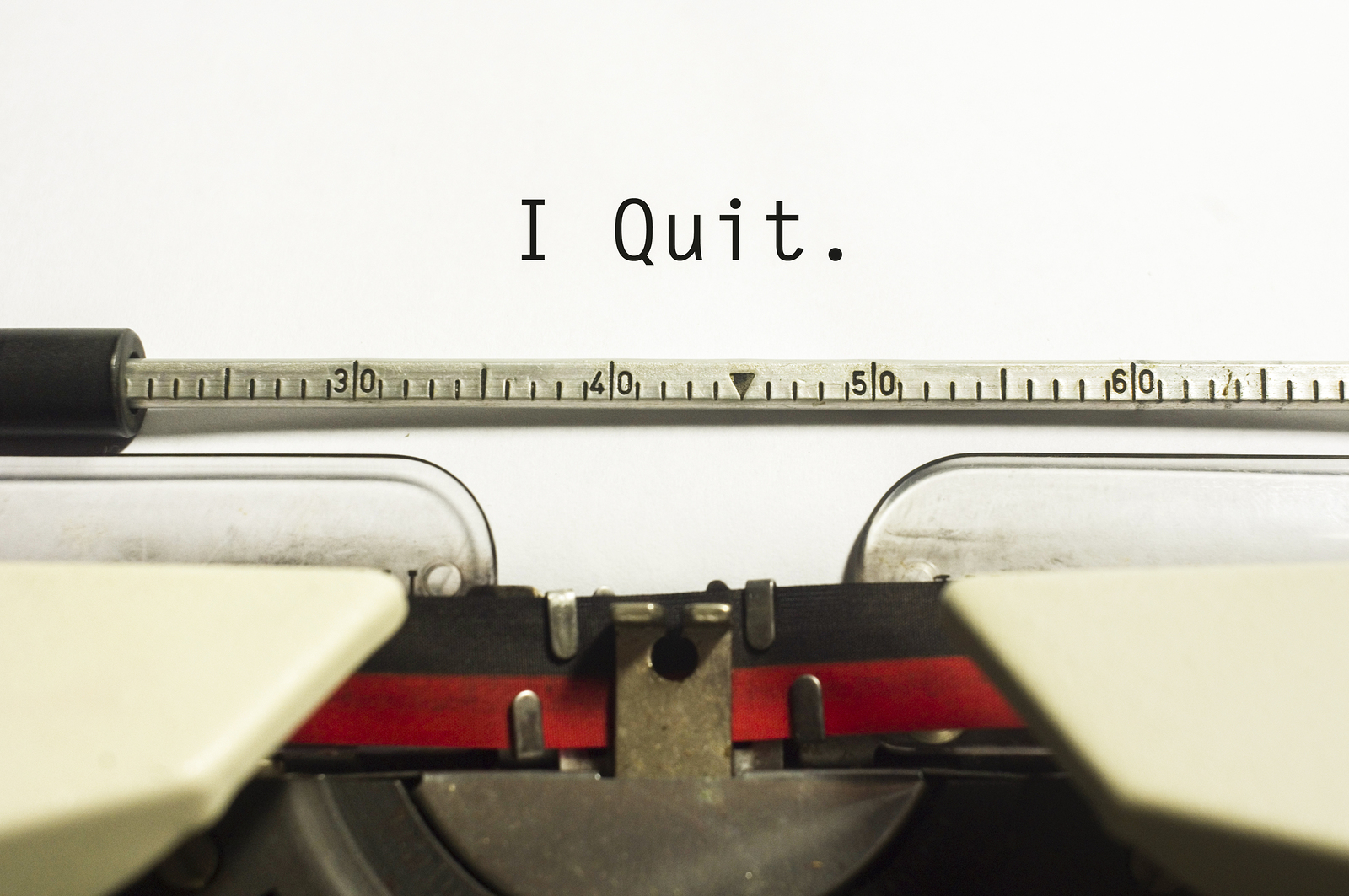As an entrepreneur, and generally stubborn person, learning how to quit has been one of the hardest lessons of my adult life. I’m not considering quitting my business, but in a hundred small ways I’ve learned the value of a tactical retreat – of quitting one path in favor of another.
“Quitters Never Win and Winners Never Quit” is quite frankly bullshit. It’s true, I suppose, that Olympic athletes don’t stop 10 yards from the finish line because it’s hard. But they do quit. They quit the flute when they take up ballet. They quit going out with friends, quit working with coaches that don’t help them reach their goals, quit drinking, give up on the idea of graduate school for a chance at a medal.
They do this the same way politicians quit the Senate when they become President, restaurants stop serving after midnight when there’s no customers, and stores quit stocking items that don’t sell.
People who become the best in the world and businesses that serve millions selectively quit all the time. Here’s how:
1. Successful Entrepreneurs Quit Working With the Wrong People.
Business relationships are a lot like dating relationships – you have to be willing to quit the bad ones to find the great ones. This relates to coaches, clients, colleagues, suppliers, employees, employers… anyone who isn’t passionate about your vision and goals to achieving them does not warrant a spot in the inner circle.
This doesn’t mean people don’t belong in your life, but perhaps they should watch from a distance. I came to this conclusion watching the TV series the West Wing on Amazon. Even the President has an inner circle of supporters. They’re people who support the vision, certainly, but they can also help execute the strategy. Everyone plays a part and some roles are more central than others. This is the time when your ego can come out to play a little – you’re the President and you get to staff your supporting roles. Be okay quitting relationships with people who won’t help you on your way.
Entrepreneurs who keep returning to coaches who don’t help them grow or try to pitch the same people who are not buying get stuck and discouraged and depressed. It’s time to quit the wrong relationships and give your best energy to the right ones.
2. Successful Businesses Quit Offering Stuff That Doesn’t Sell.
Everyone has bumps along the way when they’re selling products or services but if you have an offer that isn’t selling – for months now and after substantial adjustments and marketing – then it’s time to stop offering what doesn’t sell. Your ego is going to take a hit here but when it comes down to it, you’re in business to a) help people and b) make money. Continuing to offer services that aren’t selling fails to accomplish either of those goals and is a distraction from finding the right mix of offers for your audience.
Stores that continue to stock unpopular merchandise know how costly it is to have inventory that isn’t selling. Even if your inventory is in the form of service offers, it’s taking up real estate on your website and in your pitch. Focus instead on the things people want and quit trying to push something they don’t.
Of course, this actually assumes that you know what your sales are, have goals to measure success and look at those numbers on occasion. If not, be careful breathing with your head stuck in the sand.
3. Successful People Quit Pursing Things That Don’t Serve.
I want to illustrate this one with a story: it’s December 1st, the day that traditionally I’d be celebrating the end of National Novel Writing Month having submitted my novel for verification. Instead I gave up just a few days into November having written a little more than 5,000 words – just about 10% of the 50,000 word goal.
NaNoWriMo, as it’s known to us geeks, is a great program. I’ve participated 7 years now and won for the last 4. I’ve self published 2 years worth of novels and truly love writing. So why quit? And why am I okay with it?
Quite simply, the goal of NaNoWriMo had become disconnected with my goals in November. And unless I were able to adopt the power to freeze time, all of those goals couldn’t co-exist. Just like the Olympic hopeful, I had to make tough choices about what was most important to do the right things well, instead of many things okay. Quitting doesn’t have to mean that something is wrong or broken or bad. It can simply be an acknowledgement that it doesn’t serve the person you are now, the person that you want to become. It’s a snake shedding a skin that served its purpose.
Quitting gets a bad rap, it’s a call of cowardice and feels like failure. What if, instead of guilt and shame, we embraced the things we decided not to do after careful deliberation and put them behind us to focus with faith on what’s best for our futures? I imagine we’d be able to move forward faster and experience a lot more grace in the journey.
So, what are you quitting?

 Does Business Productivity Matter?
Does Business Productivity Matter? How are you stopping yourself from success?
How are you stopping yourself from success? Systems for Personal Growth
Systems for Personal Growth